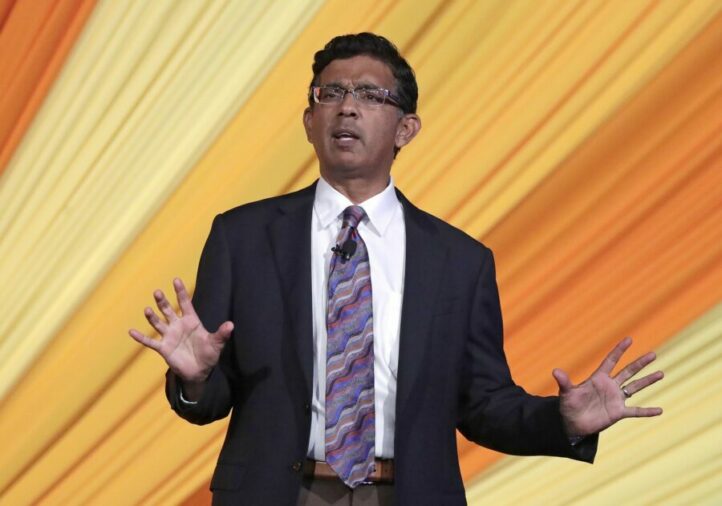Dinesh D'Souza's Recent Apology and Acknowledgment of Flaws in "2000 Mules"
In a significant turn of events, Dinesh D'Souza, the controversial filmmaker known for his documentary "2000 Mules," has publicly apologized for the inaccuracies presented in his film, which has been a focal point in the ongoing debate surrounding the 2020 U.S. presidential election. This apology comes amidst a backdrop of legal challenges and widespread criticism regarding the film's claims of widespread voter fraud.
Background on "2000 Mules"
"2000 Mules," released in 2022, posited that there was a coordinated effort to commit voter fraud during the 2020 election, particularly targeting key swing states that ultimately decided the election in favor of Joe Biden over Donald Trump. The film gained traction among conspiracy theorists and was embraced by many in the MAGA movement, despite being widely debunked by fact-checkers and independent investigations.
The Apology
On December 2, 2024, D'Souza issued a statement acknowledging that the film was based on faulty data and that some of the claims made were inaccurate. He specifically apologized to Mark Andrews, a Georgia man who was misidentified in the film as a potential ballot harvester. D'Souza admitted that the surveillance footage used in the film was not properly correlated with cell phone geolocation data, which was a critical component of the film's argument.
In his apology, D'Souza stated, "I operated in good faith, but I would have edited the film differently if I had known the true nature of the data." This admission marks a significant shift for D'Souza, who has long defended the integrity of his work against accusations of misinformation.

Legal and Public Repercussions
The apology comes at a time when D'Souza is facing a lawsuit related to the claims made in "2000 Mules." The legal challenges have intensified scrutiny on the film and its assertions, leading to calls for accountability from various quarters, including media outlets and political commentators.
The backlash against D'Souza has been fierce, with many critics labeling him a conspiracy theorist and accusing him of spreading disinformation. His recent admission has been interpreted by some as an attempt to mitigate the damage caused by the film and to distance himself from the more extreme claims that have been associated with it.
Media Coverage and Reactions
The media has extensively covered D'Souza's apology, with outlets like NPR, The New York Times, and Rolling Stone highlighting the implications of his admission. The New York Times reported that D'Souza's acknowledgment of the film's flaws could have broader implications for the ongoing discourse about election integrity and the narratives surrounding the 2020 election.
In addition to the apology, D'Souza has denied that his admission was coerced or forced, asserting that it was a personal decision made in light of the evidence presented against the claims made in "2000 Mules." This denial has sparked further debate about the motivations behind his apology and whether it reflects a genuine change of heart or a strategic move to protect his reputation.
The Broader Context of Election Fraud Claims
D'Souza's film has been a cornerstone for many who believe in the stolen election narrative. His recent admission raises questions about the validity of such claims and the impact of misinformation on public perception. The film's assertions have been widely criticized for lacking credible evidence, and D'Souza's acknowledgment of inaccuracies may contribute to a growing skepticism about the narratives pushed by election deniers.
As the political landscape continues to evolve, the implications of D'Souza's apology may resonate beyond his personal brand, influencing how future claims of election fraud are perceived and debated in the public sphere.

Dinesh D'Souza's recent apology and acknowledgment of the flaws in "2000 Mules" represent a pivotal moment in the ongoing conversation about election integrity and misinformation. As he navigates the fallout from his admission, the broader implications for the MAGA movement and the discourse surrounding the 2020 election remain to be seen. The response from both supporters and critics will likely shape the narrative moving forward, as the political landscape continues to grapple with the consequences of misinformation and the quest for accountability in the realm of public discourse.
For more detailed coverage, you can read the full articles on NPR, The New York Times, and Rolling Stone.




